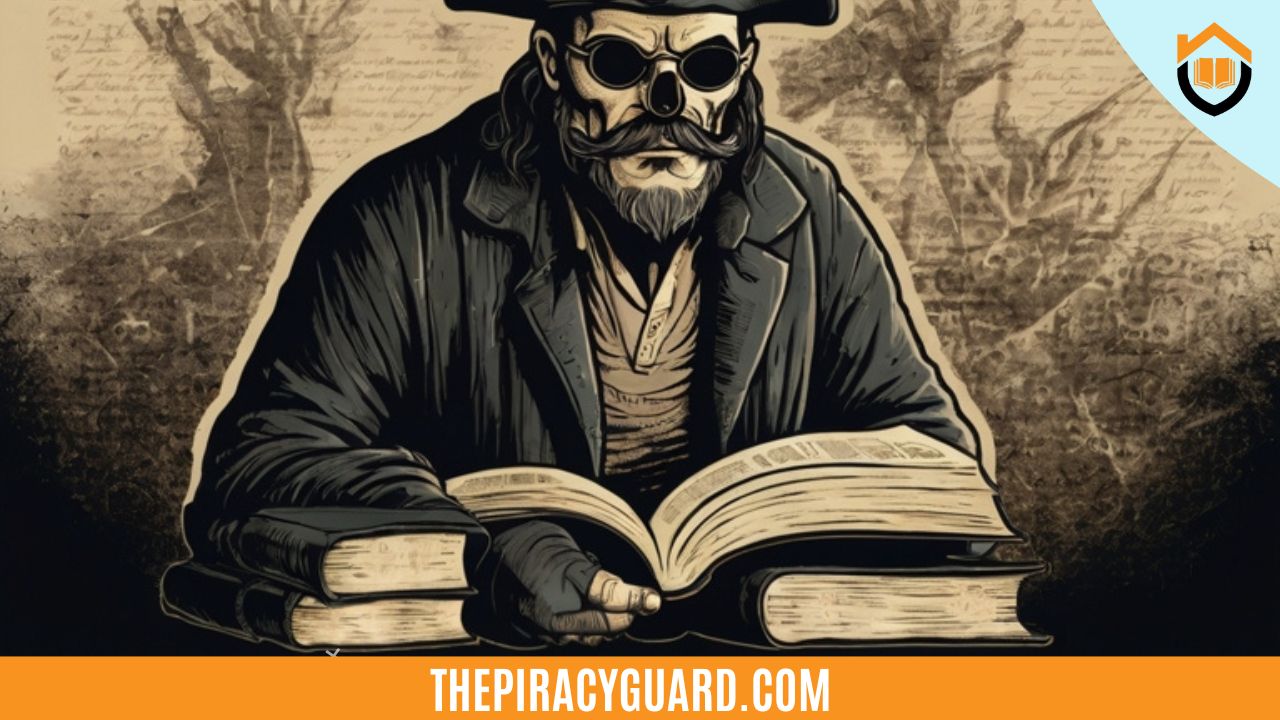The term “book piracy” floats around author communities constantly, often accompanied by strong emotions ranging from outrage to resignation. But what exactly constitutes piracy in the digital age, and beyond the obvious illegality, how does it genuinely impact the creators – the authors themselves?
At its core, book piracy is the unauthorized copying, distribution, or selling of copyrighted written works. In today’s world, this most commonly manifests as illegal ebook downloads from unauthorized websites, torrent networks, or file-sharing platforms. While some argue piracy offers free exposure, the reality for most authors is far more complex and often detrimental.
The Scale of the Problem: More Than Just Numbers
It’s difficult to get precise, universally agreed-upon figures for the total global impact of book piracy, but available data paints a concerning picture. Studies and reports, notably highlighted by organizations like the Authors Guild, estimate that U.S. publishers lose around $300 million in revenue annually due to ebook piracy (Forbes, 2019; Authors Guild). While this figure represents publisher income, it directly translates to losses for authors.
Think about it: authors typically earn royalties as a percentage of their book’s sales price. If a book is downloaded illegally instead of purchased, that’s a lost sale, and consequently, lost royalty income for the author. Vistex estimates that potentially 4 million books are illegally downloaded each year, representing a significant loss pool from which author royalties would otherwise be drawn.
Direct Financial Impact on Authors
For bestselling authors with massive readerships, the financial hit from piracy might be absorbed more easily (though it’s still a loss). However, for the vast majority of writers – debut authors, mid-list authors, and those in niche genres – the impact can be far more significant.
- Lost Royalties: Every illegal download represents a potential lost sale. If an author earns, say, $1-$2 per ebook sale, thousands of illegal downloads quickly add up to substantial missing income. This is money authors rely on to pay bills, invest in marketing, and fund the time needed to write their next book.
- Impact on Advances and Future Contracts: Publishers base decisions about advances and future contracts partly on sales performance. If piracy significantly deflates the sales numbers of an author’s previous books, it can negatively affect their perceived market value, potentially leading to smaller advances or even difficulty securing future deals.
- Undermining Legitimate Sales Channels: Widespread availability on pirate sites can condition readers to expect content for free, potentially reducing their willingness to pay for ebooks through legitimate channels like Amazon, Kobo, or independent bookstores.
Indirect and Intangible Costs
Beyond the direct financial losses, book piracy carries several indirect costs:
- Devaluation of Creative Work: When books are readily available for free illegally, it can create a perception that the work involved – the years of writing, editing, revising, and publishing – has little monetary value. This undermines the profession of authorship.
- Emotional Toll: Discovering your work has been stolen and distributed without permission can be incredibly disheartening and stressful. Authors pour immense time, effort, and emotional energy into their books. Piracy can feel like a personal violation, leading to frustration, anxiety, and demotivation.
- Time Spent Fighting Piracy: Authors may feel compelled to spend valuable time searching for infringing copies and sending takedown notices – time that could otherwise be spent writing, marketing, or engaging with readers. This is where monitoring services like The Piracy Guard can be invaluable, automating the detection and reporting process to free up author time.
What About the “Free Exposure” Argument?
A common counter-argument is that piracy provides free exposure, potentially leading new readers to discover an author’s work and eventually purchase future books or backlist titles. Some high-profile authors, like Paulo Coelho, have even experimented with intentionally leaking their work, reportedly seeing sales increases in certain markets (Jenkins).
However, relying on piracy for exposure is a risky gamble for most authors:
- Unreliable Conversion: There’s no guarantee that someone who downloads a book illegally will ever become a paying customer. Many may simply consume the free content and move on.
- Market Conditioning: As mentioned earlier, widespread free availability can train readers to devalue digital books, making them less likely to pay for any author’s work.
- Target Audience Mismatch: Readers actively seeking illegal downloads may not represent an author’s ideal target audience – those willing to invest in supporting creators.
- Anecdotal vs. Systemic: While isolated examples of piracy leading to sales might exist, they don’t negate the systemic financial losses reported by industry groups like the Authors Guild. For every anecdotal success story, countless authors experience tangible income loss.
While discovery is crucial (addressing the “obscurity” problem), relying on illegal distribution channels for that discovery is generally not a sustainable or reliable business strategy for authors.
Conclusion
Book piracy is more than just an abstract legal concept; it has tangible financial and emotional consequences for authors. While the scale can feel overwhelming, understanding the real impact underscores the importance of protecting your work. It’s not just about recouping every single lost sale, but about affirming the value of your creative labor, maintaining control over your intellectual property, and ensuring the sustainability of your writing career. Utilizing available tools, from DMCA notices to automated monitoring services like thepiracyguard.com, empowers authors to mitigate these negative effects and focus on what they do best: writing.
References:
- Forbes. (2019, July 28). U.S. Publishers Are Still Losing $300 Million Annually To Ebook Piracy. Retrieved from https://www.forbes.com/sites/adamrowe1/2019/07/28/us-publishers-are-still-losing-300-million-annually-to-ebook-piracy/
- Authors Guild. (n.d.). Advocacy: Piracy. Retrieved from https://authorsguild.org/advocacy/piracy/
- Vistex. (n.d.). How Does eBook Piracy Impact Publishers, Authors, and Readers? Retrieved from https://www.vistex.com/resources/ebook-piracy-impact-publishers-authors-readers
- Gardner, R. (2011, November 7). Authors and Book Piracy. Rachelle Gardner Literary Agency. Retrieved from https://rachellegardner.com/authors-and-book-piracy/
(Disclaimer: This guide provides general information and perspectives, not financial or legal advice.)

